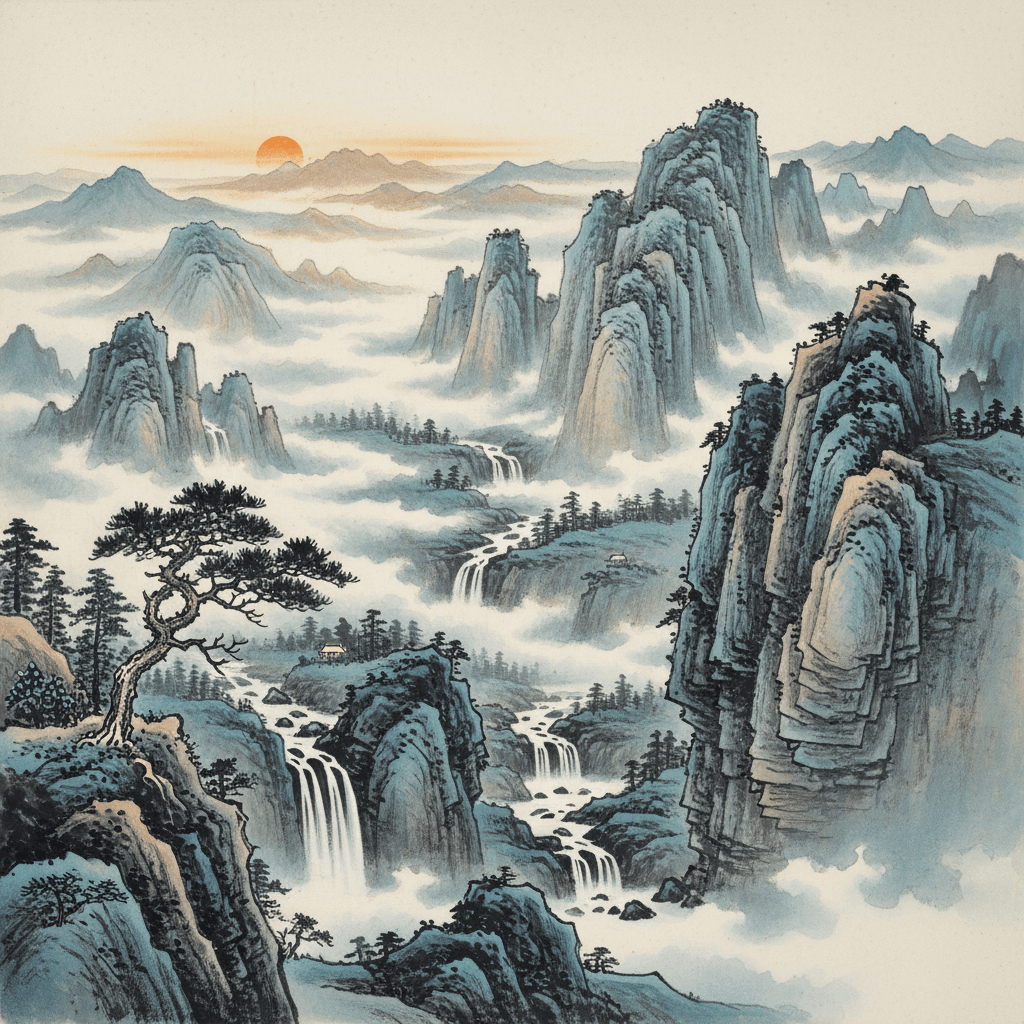Why Heaven and Earth Endure: Selfless Continuity

Heaven and earth endure. The reason heaven and earth can be long and lasting is that they do not live for themselves; therefore they can long endure. - Laozi
The Daoist Paradox of Longevity
Laozi observes that heaven and earth last because they do not live for themselves, a paradox at the heart of Daoist thought. In Daodejing, chapter 7, the cosmos endures precisely by not grasping, not claiming, and not centering a private aim. Like the “valley spirit” and the low-lying sea, emptiness invites flow, and what yields remains unbroken. Thus, endurance is not won by force but by relinquishing possessiveness, allowing life to circulate through rather than terminate in the self.
From Cosmic Pattern to Human Conduct
Moving from cosmos to character, Laozi turns the pattern into guidance: rulers and elders who put others first quietly secure lasting influence. Daodejing, chapter 66, likens the sea’s greatness to its willingness to stay below—all rivers flow to it. Chinese historians later praised Emperor Wen of Han for frugality and service; Sima Qian’s Shiji (c. 94 BCE) portrays his light taxes and restraint as foundations of a stable, enduring reign. In this view, authority endures when it does not live for itself.
Ecological Stewardship and Self-Limitation
Extending the insight outward, nature itself offers a template: systems thrive when no single part hoards gains. Modern ecology warns that overuse collapses commons, while collaborative restraint sustains them. Elinor Ostrom’s Governing the Commons (1990) documents communities that endure by setting limits, sharing monitoring, and aligning incentives. Thus, Laozi’s counsel becomes environmental wisdom: when we stop living for short-term extraction, forests, fisheries, and soils can continue—like heaven and earth—to endure.
Nonattachment as Effective Action
Crucially, selflessness in Daoism is not passivity but nonattached action—wu wei—doing what accords with the situation without grasping for credit. This resonates beyond China: the Bhagavad Gita 2.47 urges work without attachment to its fruits, and Stoics advise focusing on virtue rather than outcomes. By easing the ego’s agenda, effort becomes less brittle and more adaptive. Consequently, projects weather setbacks because identity is not staked on immediate results.
Organizations That Outlast Their Founders
In practical terms, institutions endure when mission outweighs ego. Toyota’s long-term thinking—respect for people and continuous improvement—prioritizes system health over quarterly triumphs, enabling decades of resilience. Likewise, Patagonia’s founder Yvon Chouinard transferred ownership (2022) to a trust and a nonprofit collective so profits benefit the planet—an explicit refusal to make the company live for itself. When structures serve a larger purpose, they gain legitimacy that compounds over time.
Avoiding Misreadings of Selflessness
Yet selflessness is not self-erasure or neglect of needs. Daoism aims at balance: empty the cup, but keep a cup. Zhuangzi’s tale of the “useless tree” shows how non-competition can preserve life, but that preservation still requires responsiveness to conditions. The point is to decenter the grasping self, not to abandon responsibility; service without boundaries burns out, while principled humility nourishes both giver and field.
Practices for Enduring Impact
Finally, Laozi’s principle invites habits that outlast us: design roles to be replaceable, document knowledge openly, and align rewards with stewardship metrics, not mere speed. In communities, rotate leadership, set regenerative quotas, and celebrate quiet maintenance as much as flashy launches. By shifting glory from possession to preservation, we mirror heaven and earth—channeling value rather than capturing it—so that our work, like the world it serves, can long endure.